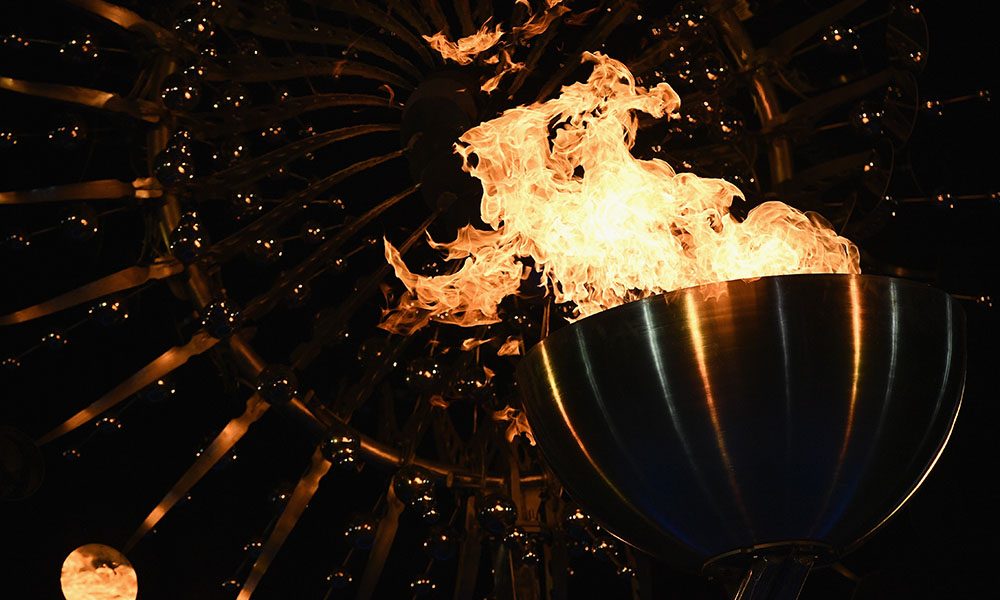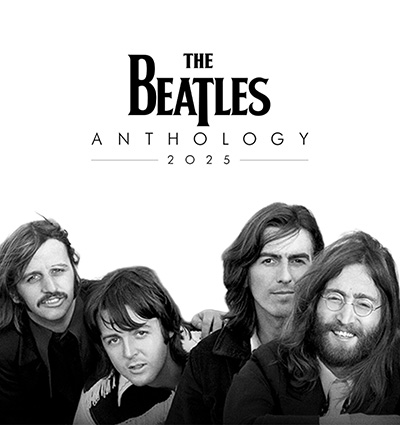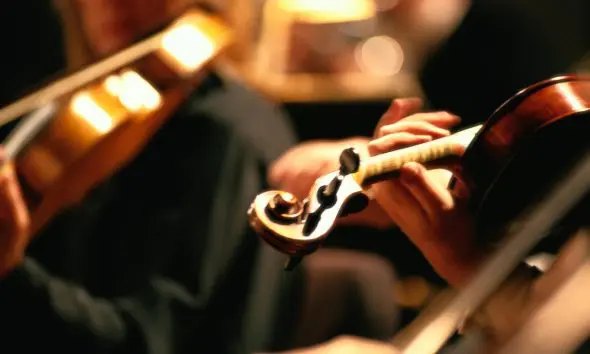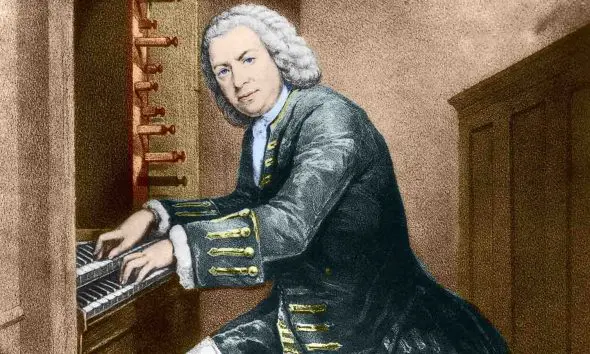Best Classical Music To Celebrate The Tokyo Games
Discover our selection of the best pieces of classical music to celebrate one of the biggest sporting events in the world.

What classical music comes into your head when you think of the Olympic Games? Mr Bean (Rowan Atkinson) playing Chariots of Fire with the London Symphony Orchestra at the 2012 London Olympics? Torvill and Dean skating their way to Gold at the 1984 Winter Olympics in Sarajevo dancing to Ravel’s Boléro? Or Gershwin’s Rhapsody in Blue at the Los Angeles Olympics the same year played by 85 pianists? Whatever your memories, composers have been notably uninspired by sport in music. Arthur Honegger is one of the very few ever to have written a piece about a particular sport. His short orchestral work Rugby was first performed in 1930. Sadly, rugby, though included in early modern Olympics, was dropped in 1924 and, despite several attempts, has never been reinstated. Never mind! Scroll down to discover our selection of the best classical music to celebrate the Olympics featuring 20 masterpieces.
Best Classical Music To Celebrate The Tokyo Games: Top 20 Pieces
20: Horse of the Year – Wolfgang Amadeus Mozart
Equestrianism, in the forms of dressage, show-jumping and eventing, have been part of the Olympic Games ever since the 1900 Summer Olympics in Paris (with the exception of the following two Games). For lovers of all things equestrian, the UK’s Horse of the Year Show was introduced for many years by the opening of the last movement of Mozart’s Divertimento for two horns and string quartet, K522 – A Musical Joke – in an arrangement by Waldo de los Rios.
19: Sailing By – Ronald Binge
Sailing has been an Olympic sport since the Games of the first Olympiad in 1896. In the UK it is a cherished piece of light music, introducing as it does the late-night shipping forecast on BBC Radio 4. Its gentle waltz rhythm is known to lull many listeners asleep. Derby-born Ronald Binge (1910-79), a prolific composer and arranger, wrote the piece in 1963.
18: Sports et Divertissements – Erik Satie
Satie’s Sports and Pastimes is a suite of 21 short piano pieces composed in 1914 (not published till late in 1923). Not all the sports alluded to in this unique work are Olympic sports (sea bathing, Blind Man’s Buff and flirting, for instance!), but yachting, racing, sledging and tennis are all included. Nowadays, performances of the work are often presented with the surrealist prose poems Satie provided for each theme.
17: Olympic Hymn – Leonard Bernstein
This Olympic Hymn, one of the best pieces of classical music for the Olympics, was written in 1981 by Bernstein for the International Olympic Congress in Baden-Baden, West Germany, and orchestrated by Hershy Kay with lyrics by the German author and poet Günter Kunert. The piece was not recorded until 1996 when John Williams, conducting the Boston Pops Orchestra and the Tanglewood Festival Chorus, included it on his album Summon the Heroes.
16: Les Contes des Hoffmann – Jacques Offenbach
No direct connection with the Olympic Games – but Olympia is the name of the mechanical doll with whom Hoffmann falls in love in the first act of Offenbach’s much-loved opera (he died in October 1880, with the manuscript in his hand, four months before the premiere). Olympia sings one of the opera’s most famous arias – ‘Les Oiseaux dans la Charmille’ (known as ‘The Doll Song’) during which she runs down and needs to be wound-up before she can continue. It is a test piece for any soprano, thoroughly deserving of a gold medal.
15: ‘We are Gentlemen of Japan’ from The Mikado –
Sir Arthur Sullivan and Sir W S Gilbert
A nod to the hosts of the 2021 Olympics. Gilbert & Sullivan’s comic opera, set in the fictional town of Titipu, opened in London in 1885 and enjoyed one of the longest runs of any theatre piece up to that time. After the overture, with its faux-Oriental melodies, the opening chorus features the gentlemen of Titipu introducing themselves in the courtyard of the official residence of Ko-Ko, The Lord High Executioner.
14: Olympic Hymn – Walter Bradley Keeler
For three and a half decades, the first Olympic Hymn (see below) was forgotten which was why in 1928 the International Olympic Committee set about organising a competition for a ‘hymne olympique’. Gold, silver and bronze medals were to be awarded, with the winner receiving 500 dollars for performance rights. The prize jury consisted only of Americans and it was, unsurprisingly, a fellow countryman, pianist Walter Bradley Keeler, who won. Written in the style of an Anglo-American church hymn, the anthem was played on 30th July 1932 at the opening ceremony of the Games of the 10th Olympiad.
13: L’Olimpiade – Antonio Vivaldi
The plot of this opera begins with Megacles arriving in Sicyon just in time to enter the Olympic Games under the name of Lycidas, a friend who once saved his life. Unknown to Megacles, Lycidas is in love with Aristaea, whose hand is to be offered to the winner of the games by her father, King Cleisthenes. It gets even more complicated after that – but the libretto by the great Pietro Metastasio was later set by over 50 other composers. Vivaldi’s version was premiered in Venice in 1734.
12: ‘The Swimmer’ from Sea Pictures – Sir Edward Elgar
Think not Michael Phelps and Mark Spitz. Think, instead, wild swimming: a turbulent sea in which a swimmer recalls happy times with a lost lover, and imagines being drowned in the thrusting waves. Elgar set to music this bracing poem by the Australian poet Adam Lindsay Gordon and placed it fifth and last in his glorious song cycle Sea Pictures. The premiere, on 5 October 1899, was at the Norfolk and Norwich Festival. Elgar himself conducted. The contralto Clara Butt sang – dressed as a mermaid.
11: Javelin – Michael Torke
Javelin, one of the best pieces of classical music to celebrate the Olympics, is probably the most famous work by the American composer Michael Torke (b. 1961). It was commissioned by the Atlanta Committee for the Olympics to mark the 50th anniversary of the Atlanta Symphony Orchestra (premiered in September 1994 by the orchestra) and played in the opening ceremony of the 1996 Summer Olympics in Atlanta.
10: Sporting Occasion – Arnold Steck
A classic piece of light orchestral music by Arnold Steck, the pseudonym of Leslie Statham (1905-75). He was born in Solihull and spent the early part of his career in the army playing in the band of the Welsh Guards. Many will know the middle section as the closing theme of the Wimbledon Championships.
9: Jeux – Claude Debussy
The scenario of this ballet, composed by Debussy in 1912, is ostensibly about a game of tennis – or rather three people looking for a lost tennis ball at dusk – but there are other games being played by the boy and two girls involved: hide-and-seek and their relationships with one another. Jeux (Games) was written for Sergei Diaghilev’s Ballets Russes and choreographed by Vaslav Nijinsky. It received its premiere in Paris in May 1913.
8: The Olympic Spirit – John Williams
Following the success of his 1984 Olympic Fanfare and Theme for the Los Angeles Games, NBC commissioned Williams to write a piece for their coverage of the 1988 Summer Olympics in Seoul, South Korea. The official song for these Games, however, was Hand in Hand by Koreana (a South Korean band) sung in both Korean and English (lyrics by Tom Whitlock).
7: The Easy Winners – Scott Joplin
One of the most popular works by piano ragtime composer Scott Joplin (1868-1917). It was composed in 1901. The sheet music cover announced it as ‘A Ragtime Two Step’ and had pictures of baseball, football, horse-racing and sailing winning their sports with no difficulty. Joplin begins the central ‘Trio’ section with a bugle-like call, reminiscent of the start of a horse race.
6: Olympic Hymn (the Olympic Anthem) – Spyridon Samaras
The Greek opera composer Spyridon Samaras (1861-1917) has claimed his place in history as the composer of the official Olympic Hymn. It is a choral cantata with lyrics by the Greek composer Kostis Palamas and was first performed at the opening ceremony of the first modern Olympic Games held in Athens in 1896. It was formally declared the official Olympic Hymn in 1958. Since 1960 it has been sung at the opening and closing ceremonies of each Olympic Games – sometimes in Greek, but usually in English.
5: The Trap – Ron Goodwin
You might not know the title of the piece or its composer but you are almost certain to know the music. Though not strictly an Olympic composition, it’s here to represent one of the most iconic of all Olympic events – the marathon. It is used as the theme played every year to introduce coverage of the London Marathon. Goodwin composed it not for any sporting event but for the soundtrack of the 1966 film The Trap starring Oliver Reed.
4: Festive Overture – Dmitri Shostakovich
The Games of the 22nd Olympiad were held in Moscow in 1980 and are remembered chiefly for the boycott by 66 countries, with, inevitably, more than half of the available gold medals going to the USSR and East Germany. Shostakovich’s exuberant Festival Overture was adopted as the official theme of the Games. It was composed in 1947 to mark the 30th anniversary of the ‘October Revolution’.
3: Chariots of Fire – Vangelis
Evángelos Odysséas Papathanassíou (b. 1943), known professionally as Vangelis, is a Greek musician and composer who wrote the music for the 1981 British film Chariots of Fire, one of the best pieces of classical music to celebrate the Olympics. It tells the true story of two British athletes, Eric Liddell and Harold Abrahams, competing in the 1924 Olympics (the Games of the 8th Olympiad) in Paris. With a synthesizer and piano among other instruments, this was a bold choice for a period costume film – but it won Vangelis the Academy Award for the Best Original Soundtrack.
2: Olympische Hymne – Richard Strauss
The German Olympic Committee approached Richard Strauss as early as 1932 to write an Olympic Hymn for the 1936 Games to be held in Berlin. The text was decided by competition. Out of 3,000 entries, a three-verse poem by an unemployed German actor, Robert Lubahn (1903-74) was chosen. The main musical theme was derived from a symphony Strauss planned but abandoned. The composer seems not to have relished the task, writing to the librettist Stefan Zweig: “I am whiling away the boredom of the advent season by composing an Olympic Hymn for the plebs – I of all people, who hate and despise sports. Well, idleness is the root of all evil.” After Hitler had announced the Games open on 1 August 1936, Strauss conducted the work’s first performance with the Berlin Philharmonic, the National Socialist Symphony Orchestra and a choir of 1,000 all dressed in white.
1: Summon the Heroes – John Williams
The 1996 Games in Atlanta were the Centennial Olympics. This work, played in an abridged form at the opening ceremony, is the third of the four compositions written for Olympic Games between 1984 and 2002 by John Williams. Dedicated to trumpeter Tim Morrison, Summon the Heroes, the winner of our gold medal for the best piece of classical music for the Olympics, was performed for the press in London earlier in 1996, but officially premiered on 19 July 1996 by the Atlanta Symphony conducted by the composer.
Do you want to be the first to hear the latest news from the classical world? Follow uDiscover Classical on Facebook and Twitter.






